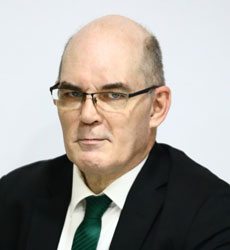Pursuing a political strategy of building infrastructure, even if it is a rather unimaginative chapter in “The Handbook of Mediocre Populism,” is certainly not a bad thing. Infrastructure — roads; rails; ports; airports; electricity and water distribution networks; telecommunications networks; and facilities to provide vital public services, such as government administration, health care and education — is a necessity for civilized society.
Maintaining and improving infrastructure is just part of the job. Ordinarily, a political leader crowing about his attention to infrastructure development is no more value-adding than an employee soliciting acknowledgment for punching in on time. However, it’s an easy win for politicians who happen to succeed others who spent their term either bungling the job or ignoring it completely, because a lack of infrastructure is more noticeable to the public than the existence of it. As this was the position the country’s current leadership found itself in at the beginning of its term, its self-congratulations on the topic of infrastructure are understandable, and from a political point of view, sensible public relations.
Continue reading with one of these options:
Ad-free access
P 80 per month
(billed annually at P 960)
- Unlimited ad-free access to website articles
- Limited offer: Subscribe today and get digital edition access for free (accessible with up to 3 devices)


